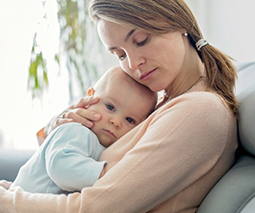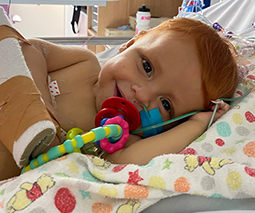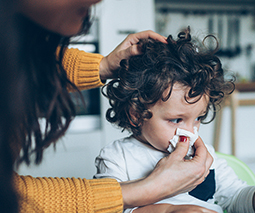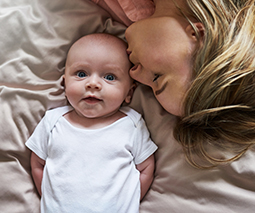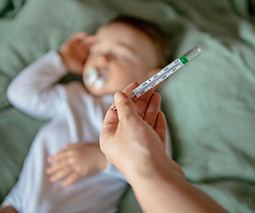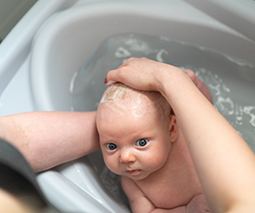What do we know about our baby’s mental health?
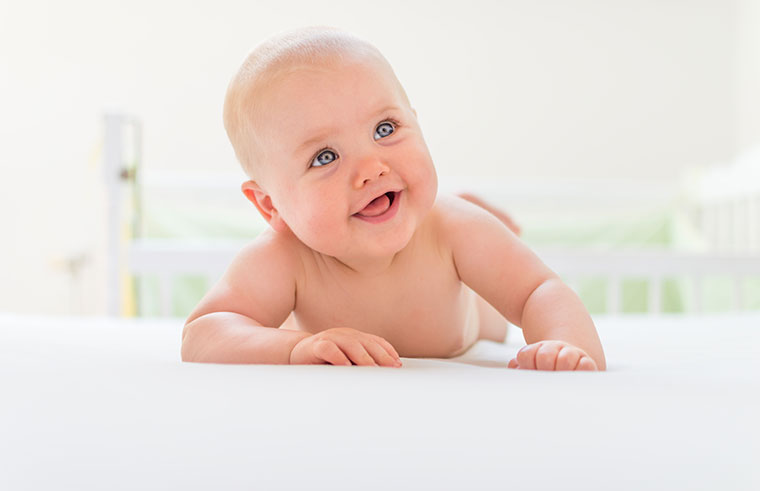
We know babies are born wanting to communicate and be social, but as parents, do we consider their mental health?
Associate Professor Brigid Jordan, a national board member for the Australian Association for Infant Mental Health, explains what is meant by infant mental health and how important it is to care for it.
What is infant mental health?
According to Brigid, babies develop emotionally in a way that enables them to have positive relationships with their parents, good social interactions, the ability to express their needs, preferences and desires.
“It’s probably only in the last 10, 20, 30 years that people have paid attention to the fact that infants and toddlers have memories of events and they can respond to traumatic events with signs of distress,” she says.
“So for babies, like everybody else, life impacts on them and they can be happy, they can be sad, they can be anxious, they can be worried. They do have memories; they have memories of dramatic events but also, they build up memories of very small events that help them understand the way that the world works.”
Listen to Associate Professor Brigid Jordon on Feed Play Love:
Babies coping in ICU
Coming into the world is hard enough for babies, so for those having to deal with ICU or medical conditions requiring major surgery, it can be even more challenging.
“Usually babies are born, and the first job is to sort out being in the world, sorting out the feelings of their body, what’s hungry, what’s being tired, what’s being bored, what’s feeling kind of a bit fractious and what’s going to fix that,” says Brigid.
“Babies who are placed in ICU are usually there because they’re sort of undercooked or they’ve got very serious medical problems and so these babies are learning what babies normally have to learn, but also coping with a body that might be unreliable, that might be in pain.”
Brigid also notes that medical procedures can be frightening or unpredictable, so babies might get in an alert and alarmed state. Plus, parents are also frightened, leaving them with less emotional resources to help their baby.
“The baby has got a double whammy,” says Brigid. “They’ve got the impacts from the hospital environment and they’ve got parents who are compromised in what they would normally be able to offer the baby.”
However, there’s a lot you can do to maintain the normal getting-to-know-you process.
“It’s worth remembering that babies recognise the voice of their mother and father … recognise the smell of their parents,” says Brigid. “So being present, touching as much as you can, speaking to the baby, some gentle music, letting the baby know that you’re there alongside them is really important.”
Brigid also believes that they may need a little bit more care.
“They have also had to cope with the surgery and the impacts of being in hospital,” she says. “No wonder it takes them a bit longer to navigate that whole cycle of feeding and sleeping and being alert, and playing and feeling confident that they can kind of do that a bit more on their own, with a bit less scaffolding from mum and dad.”
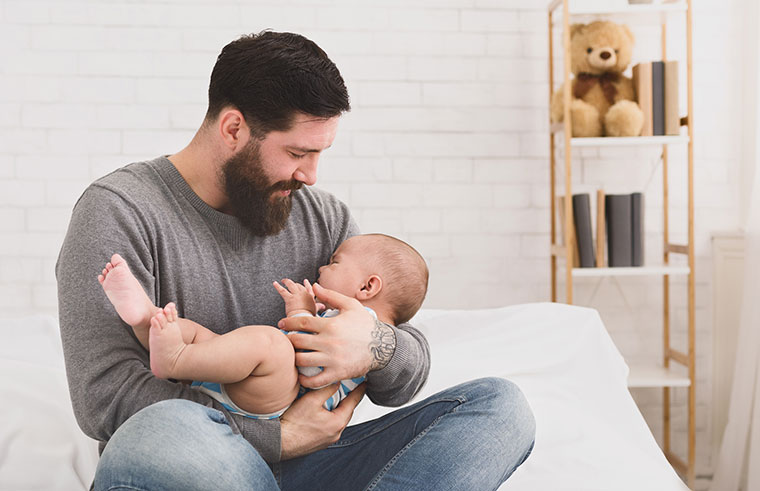
What about controlled crying?
This is a tricky area from an infant health perspective.
“For many parents, it does not feel right and I’m not comfortable giving parents instructions to do things that don’t feel intuitively right for parents.”
Brigid also believes that leaving a baby to cry for increasing amounts of time teaches the baby that if you cry longer, then parents will come.
“We would prefer ways of helping the babies to sleep that are built on the baby feeling safe enough to go to sleep by themselves, and the baby having the confidence to do that,” she says.
Sleep is about separation, says Brigid, so the baby has to be confident that things are going to be the same when they wake up.
“If there’s a lot of stress in the family, particularly if there’s anything like family violence or high conflict between the parents, then you can’t expect the baby to go to sleep.”
How much attachment is too much?
Parents need to be emotionally and physically available to children, so they know that they can come back and refuel whenever they need.
“It’s about the parents being available to give the child as much as the child needs,” she says. “Parents who have fixed views about you know, ‘I need to carry my child all the time’ or, ‘I need to breastfeed them till they’re five’ – that’s kind of parent lead, not baby lead.”
Brigid says that the sign of a good healthy attachment is when babies are free to explore their environment where there’s no danger, and they feel happy and are thriving.
“Mum shouldn’t be holding onto them too tight,” she says. “The best position to be in is ‘I’m here and I’m available but I’m not smothering you and neither am I pushing you off.’”
